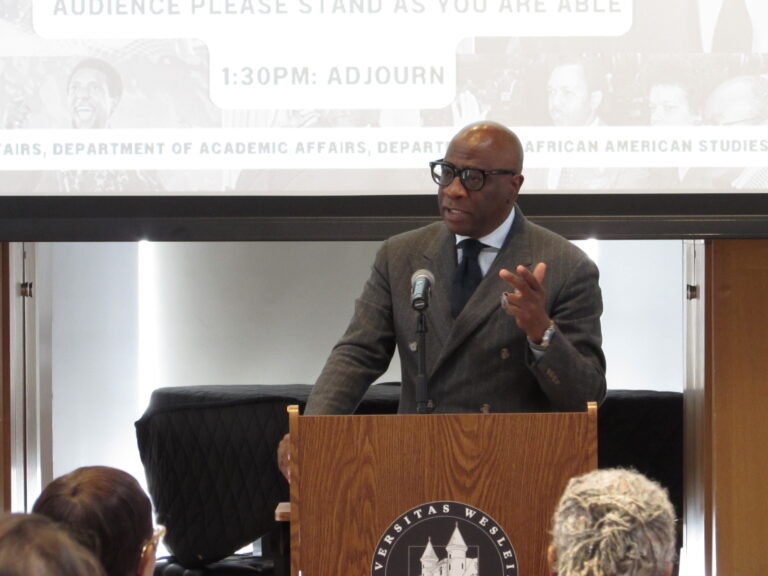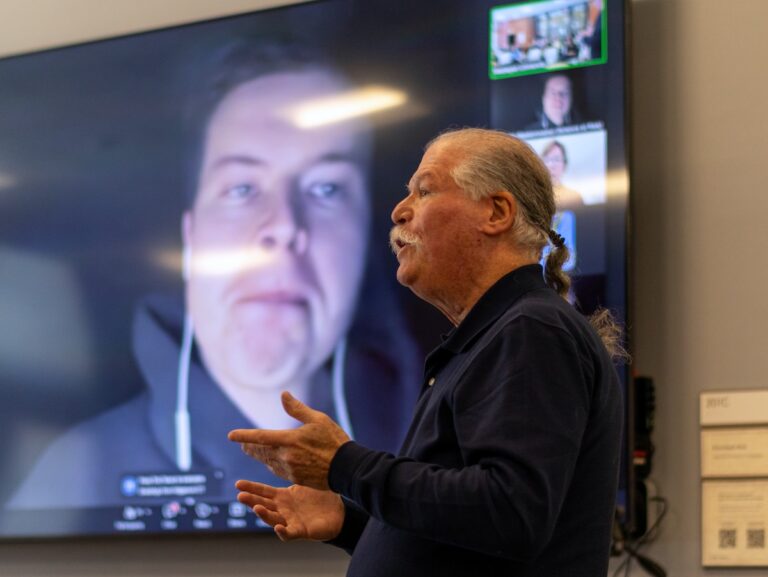Middletown to test new voting machines in Nov. 4 election
Instead of manual ones, Middletown voters will cast their ballots on new, electronic voting machines when they go to the polls for the Nov. 4 municipal elections. Implemented this year by Connecticut Secretary of State Susan Bysiewcz, the new voting machines are part a statewide pilot program to comply with the 2002 Help America Vote Act.
The act, which, according to Bysiewcz, is a response to the 2002 Florida elections fiasco, requires that there be new electronic voting machines in each of Connecticut’s 159 towns by 2006. She added that the electronic machines would ensure that each vote is counted.
The machines will allow for voters to confirm their votes before submitting them, provide greater accessibility to handicapped voters and produce a paper trail audit of each for voter. They are being implemented to guarantee the accuracy of votes, to ensure that everyone is able to vote privately and independently and to increase the turnout among disabled voters.
An electronic button—located on the lower left-hand side of the machine, so as to be wheelchair accessible—will replace the manual lever found on older machines. Instead of pulling down the lever to finalize their selections, voters will push a “Vote” button.
Last year, 200,000 disabled voters in Connecticut reported not voting because they needed assistance with the machines and were prevented from voting privately.
“That is 10 percent of the state’s population…an alarming number,” Bysiewcz said.
If handicapped residents do not come down to the voting venues to vote in person, they generally opt to fill out absentee ballots.
“But an absentee ballot is not private,” said Bysiewcz, who said that often disabled voters need assistance filling them out.
The Nov. 4 election is an important one for the city. The residents will be voting for a mayoral candidate, new council members, a Board of Education official, a treasurer and a planning and zoning official.
Middletown’s Republican Registrar of Voter Janice Gionfriddo predicted that the new machines would cause some anxiety on Tuesday.
“People are leery about change,” Gionfriddo said. “A lot of elderly people are saying, ‘We have to vote on this new machine,’ and they think it is scary. [They] think it is a computer, they think people can hack into it.”
City voting officials are taking several precautions to assuage the voters’ anxiety. There will be a demo electronic voting machine at each voting venue for voters to test out before they cast their vote on the new machines. There will also be live technicians on hand to fix technical problems.
Four types of electronic machines will be tested in the elections. Some machines have one screen with buttons for all the running candidates names, grouping them by the electoral office for which they are running. Others are more computerized and will feature changing screens that allow a voter to select for one electoral office at a time.
The Secretary of State’s office has asked the League of Women Voters and University of Connecticut to help conduct exit-poll surveys at each voting venue as the voters leave. These polls will help the Secretary of State decide which of the various models of the electronic machines is most popular among Connecticut residents and which the state will install in each of its towns by 2006.
The new machines do not represent a price increase; both the new machines and the old lever models both cost between $3000 and $5000 dollars per machine, according to Bysiewicz.
Adults will not be the only ones trying out these new voting machines, though. Students in the pilot program’s 8 participating towns will take part in a mock election, a program in its fifth year designed to “inspire [the youth] early to vote,” Bysiewicz said.
Among the other towns participating in the pilot program are Cromwell, Hartford, Grisfold, Sharon, Southington, West Hartford and Wilton.







Leave a Reply